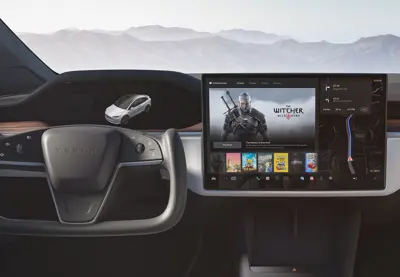Infotainment System
Infotainment systems have become a standard feature in most modern cars. They combine entertainment and information functionalities, providing drivers access to music, navigation, communication, and vehicle controls.
Last modified: Dec 31, 2024In this article, we will discuss the various aspects of infotainment systems.
History of Infotainment Systems
The concept of infotainment systems dates back to the 1980s when car manufacturers began installing basic audio systems. These systems featured cassette players and FM radios, primarily providing drivers with entertainment during long drives. As technology advanced, car manufacturers added new features to their infotainment systems, including CD players, satellite radios, and GPS navigation.
In recent years, infotainment systems have become increasingly sophisticated, incorporating advanced technology such as touchscreens, voice recognition, and smartphone integration. Today’s infotainment systems provide drivers with various features, including music streaming, hands-free calling, and real-time traffic updates.
Features of Infotainment Systems
Manufacturers design infotainment systems to provide drivers with various features that make driving more enjoyable and convenient. Some of the most common features of infotainment systems include:
Audio Systems
Most infotainment systems include audio systems that allow drivers to play music from various sources, including AM/FM radio, satellite radio, CDs, and streaming services like Spotify and Pandora.
Read our detailed section about Audio Systems.
Navigation Systems
Many infotainment systems include GPS navigation systems that provide real-time traffic updates and turn-by-turn directions to help drivers reach their destinations.
Read our detailed section about the navigation system.
Communication Systems
Infotainment systems often include hands-free calling and messaging systems that allow drivers to make and receive calls and texts without taking their hands off the wheel.
Vehicle Controls
Infotainment systems can also control various vehicle functions, such as climate control, lighting, and seat adjustments.
Read our detailed section about vehicle control.
Smartphone Integration
Many infotainment systems can integrate with smartphones, allowing drivers to access their phone’s apps, contacts, and media from the car’s touchscreen display.
Read our detailed section about smartphone integration.
Infotainment System Software
The software of the infotainment system is essential for the user experience. Manufacturers typically develop the system themselves and use it across multiple models. Others, like Polestar and Volvo, base their systems on Android Automotive.
Infotainment Screens
Infotainment systems are typically available on one or more screens. Refer to our detailed screen article to learn more.

